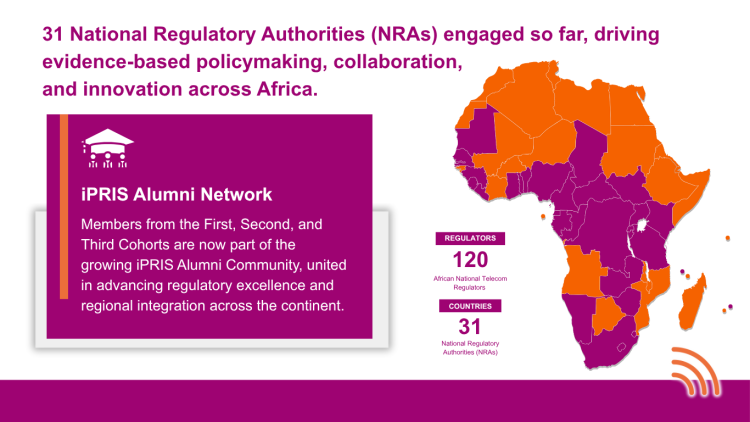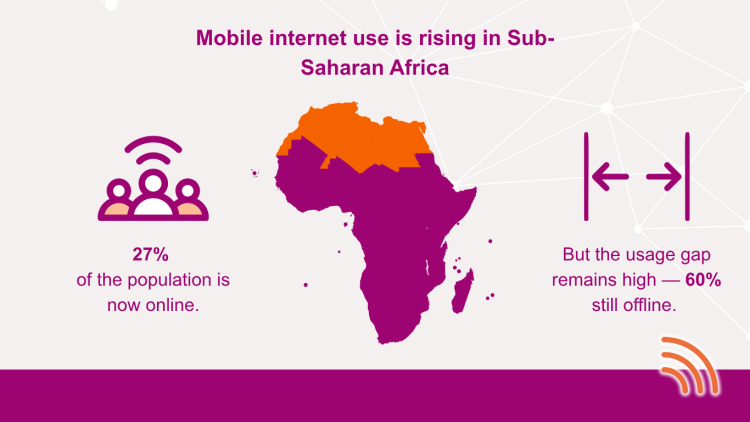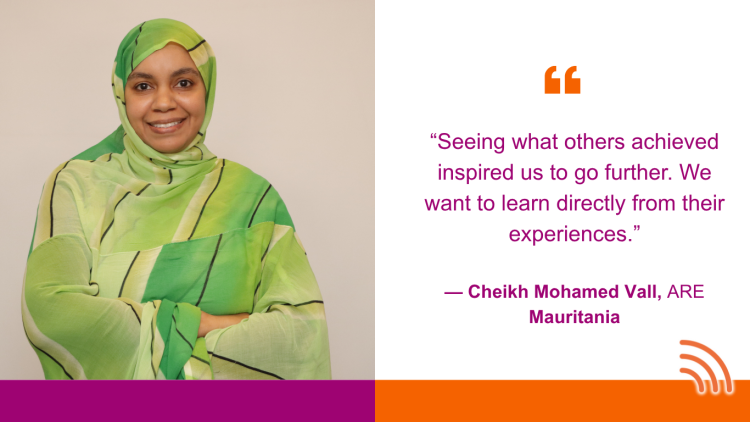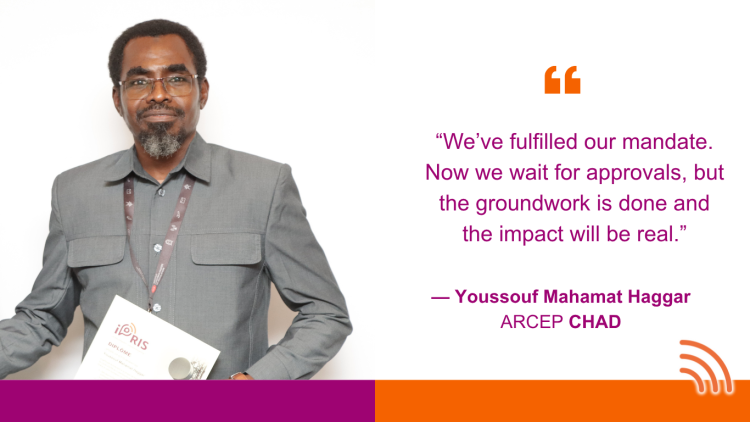The first Francophone iPRIS cohort, after a year of capacity building, collaboration, and peer learning, concluded their journey with a reflective and inspiring wrap-up session held online in October 2025. This milestone was a major progress in the iPRIS mission to support inclusiveness and regional cooperation in Africa's regulatory landscape. While the session marked the conclusion of their iPRIS journey, it simultaneously paved the way for new and continued interactions among the alumni. This cohort first met in Luxembourg for their European phase in 2024, during which they shared telecom insights with their European peers.

Since its inception in November 2023, iPRIS has supported over 120 regulators across 31 African countries, advancing inclusive, evidence-based approaches to ICT regulation. Over 200 telecom experts from across Africa and Europe are currently engaged in the iPRIS peer-to-peer capacity-building cycle. They are playing a vital role in expanding ICT access, fostering innovation, and unlocking development potential in their countries. Mobile internet penetration across Sub-Saharan Africa increased by 27%, according to GSMA, 2024. The cohort’s wrap-up plenary brought together national regulatory authorities (NRAs) from Chad (ARCEP), Mauritania (ARE), the Central African Republic (ARTP), Comoros (ANRTIC), ARPCE Congo-Brazzaville, and Senegal (ARTP), alongside regional bodies such as ARTAO and ARCEP France, and the SPIDER team. The session also included contributions from the Mauritanian national statistics agency (ANSADE) and representatives from Institut luxembourgeois de régulation (ILR).

The plenary commenced with introductions from the facilitators, among them Malena Liedholm, Aminata Ndiaye, and Edna Soomre from SPIDER, and Tantely Jeans from ILR, who thanked the participants and the cohort for their year-long commitment. Caroline Wamala, Director of SPIDER, delivered the opening remarks, noting that the cohort’s participation and development were highly valued. She shared the experience of the year as one of common enlightenment and institutional bravery. She also stressed that the Francophone extension of iPRIS was not just a linguistic achievement but a strategic action that would lead to more profound regional inclusion. The session was a time for participants to reflect, appreciate, and reaffirm their commitment; by doing so, the cohort’s successes were linked to the larger iPRIS goal of using evidence-based regulation for all in Africa.

Showcasing change initiatives
All the countries that presented their Change Initiatives did so with clarity and purpose, thus revealing the diversity of the regulatory priorities and institutional contexts. ARCEP Chad introduced revisions to the national numbering plan and drafted new regulatory documents to increase transparency and improve cash flow in the sector.
ARE of Mauritania presented its step-by-step plan to create a marketplace observatory. The undertaking comprised gathering data, obtaining regulators’ consent, and training employees, with particular focus on automated workflows and index unification. The team mentioned the study tours to acquire knowledge from other regulators, for instance, the one in Senegal, which focused on Excel-based data consolidation tools.
In the Central African Republic, the project aimed to improve internal data management and ensure compliance with regional standards. The team was optimistic about the future implementation of the changes. The Comoros Islands were cited as an example of a country that has consistently participated in the project and, although the details of their CI were not elaborated on during the session, their continued attendance remained a clear indication of the government’s commitment and the project’s momentum.
Senegal and Togo were referenced as contributors to peer learning, with Senegal’s technical approach cited as a model for replication. The exchange of tools, templates, and methodologies across countries reinforced the regional relevance of each initiative and demonstrated how shared challenges could be addressed through collaboration.
During the presentations, a consensus emerged, and a common thread of themes ran through them. Regulators aimed to fortify internal governance, enhance data quality, and, lastly, improve their capacity. The projects were based on real-world scenarios, ranging from legal frameworks to technical systems, and they demonstrated a common dedication to evidence-based policy-making.
Reflections from peers and experts
Facilitators and experts praised the cohort’s clarity, ambition, and institutional insight. Mr Rufus Samuel from ARTAO noted that without reliable data, regulators risk falling behind the market, and he emphasised that these initiatives are not just technical; they are foundational. ARCEP France encouraged collaboration with national statistics agencies to strengthen data credibility and coherence, citing their own experience with the National Institute of Statistics and Economic Studies (INSEE) as a valuable precedent.
“What we’ve learned here isn’t just technical. It’s a new way of collaborating, sharing, and building together.” Mariam Brahim Abdou ARCEP Chad
The participants' voices came together in unison, expressing the same thoughts. All of them pointed out that the true transformation is a very long process and requires not only patience, vision, and strategic partnerships but also projects like iPRIS, which made available to them both the tools and a network to support the progress. Representatives of the NRAs pointed out that working with colleagues from other jurisdictions not only allowed them to realise that they were having the same difficulties, but also taught them that the essence of regulation is trust, transparency, and co-development.

Looking ahead
This initial French group has now become part of the iPRIS alumni network, and there are still plans for engagement through mentorship, peer exchanges, and regional dialogues. The extension to French-speaking countries reinforces iPRIS's pan-African reach and facilitates knowledge sharing across languages in the field of digital regulation. The first group of French-speaking participants not only underwent a year of transformative learning but also set the stage for broader, stronger cooperation in ICT regulation. Their accomplishments indicate the influence of peer learning and the potential for institutional change. As the project evolves, iPRIS continues to support evidence-based, inclusive, and future-ready regulation in Africa.
Watch highlights from the 2024B iPRIS journey below
iPRIS is coordinated and implemented by SPIDER in strategic and technical partnership with the Swedish Post and Telecom Authority (PTS) and Institut luxembourgeois de régulation (ILR), as well as ARTAC, CRASA, EACO, and WATRA.
iPRIS is funded by the European Union, Sweden, and Luxembourg as part of the Team Europe Initiative “D4D for Digital Economy and Society in Sub-Saharan Africa” (Code: 001).





